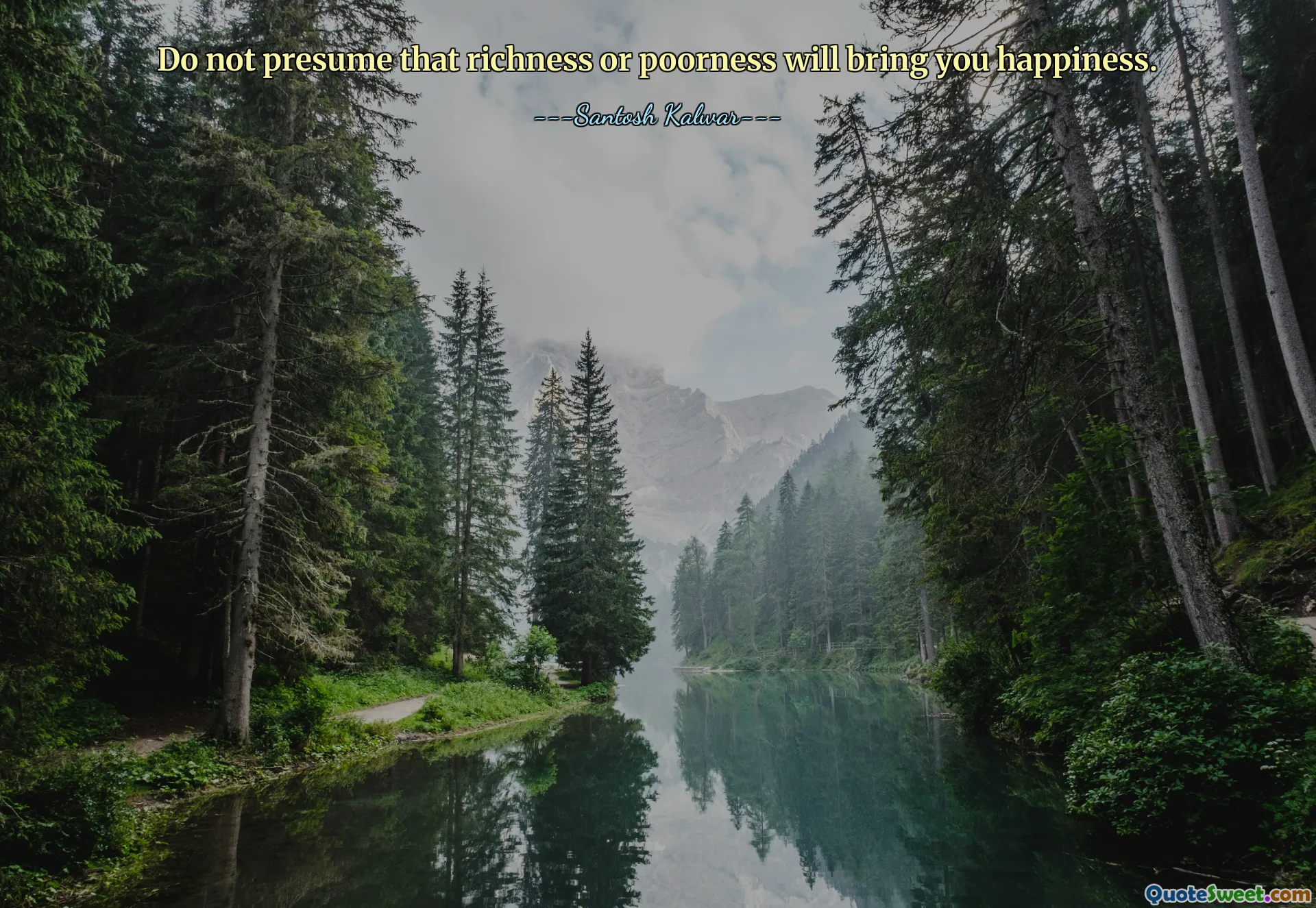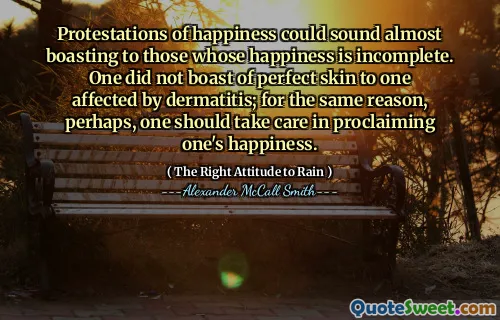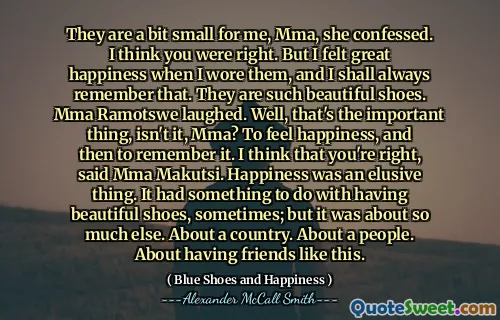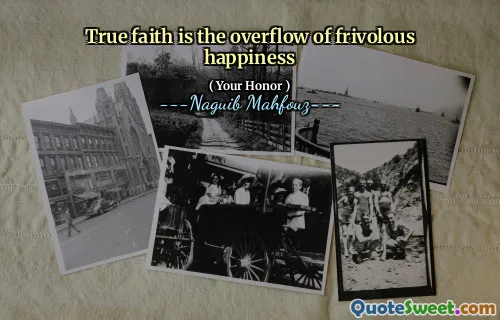
Do not presume that richness or poorness will bring you happiness.
Happiness is a complex and deeply personal experience that transcends material wealth or lack thereof. This quote elegantly challenges the common assumptions that financial status directly correlates with one's emotional well-being. On the surface, society often equates richness with happiness, promising that money will solve problems and pave the way for a joyful life. Conversely, it also sympathizes with those in poorness, assuming their suffering stems from financial hardship. However, Santosh Kalwar's insight invites us to reconsider these presumptions and look deeper into the nature of happiness itself.
True happiness, as implied by the quote, is not a commodity that can be bought or sold. It is shaped by factors such as meaningful relationships, personal fulfillment, mental and emotional health, and a sense of purpose. While money may provide comfort and reduce certain stresses, it does not guarantee contentment. Likewise, poverty does not automatically lead to misery; many find joy through resilience, community bonds, or spiritual growth.
This perspective encourages us to focus on cultivating inner well-being, emotional intelligence, and gratitude rather than chasing external markers of success. It advocates for a balanced outlook where one's self-worth and happiness are not tethered to fluctuations in financial status. By dispelling the myths linking money directly to happiness, the quote motivates us to explore more reliable paths to joy—paths grounded in experience, personal growth, and connection.
Ultimately, Santosh Kalwar's message is a reminder to manage expectations and values. It pushes back against materialism and invites reflection on what truly enriches our lives. This understanding nurtures empathy and mental clarity, helping individuals to embrace their circumstances and seek happiness within, regardless of economic conditions.











